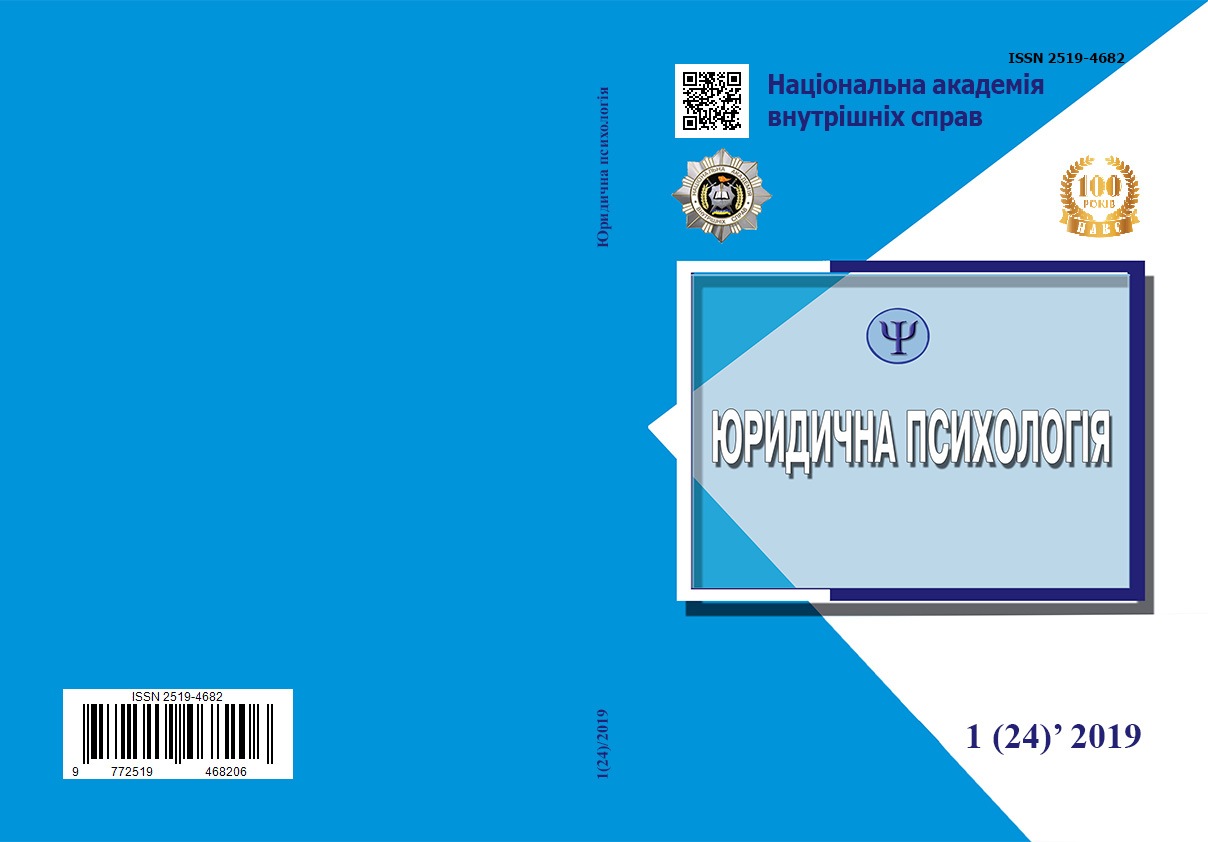Psychological Nature and Motives for Crimes Related to Abuse of Office and Ways of Overcoming them
Abstract
The purpose of this article is to analyze the motivation and incentives of civil servants to commit crimes related to abuse of office with the further identification of psychological prerequisites for the effective investigation of offenses related to abuse of power by civil servants in Ukraine, in particular heads of state. Methodology. The research was carried out on the basis of the study and analysis of scientific works of criminologists of Ukraine and other countries. Systematic, functional, general scientific (analogy, analysis, synthesis, comparison) and special-legal (comparative-legal, formal-legal, specific-legal) methods were used as the methodology of scientific knowledge. Scientific novelty. The study identified the main groups of motives as motivating causes of actions and behavior of a person during abuse of office, analyzed the role of wages as a universal preventer of corruption risks, evaluated the state system of inevitability of punishment, proper control over public procurement, ways of life as well as the role of effective anti-corruption legislation and specialized anti-corruption bodies. The result of the study is a psychological analysis of the purpose and motive of committing corruption crimes by public officials on the example of different countries of the world. Possible factors and grounds for committing corruption offenses have been identified. Suggested ways to find the psychological underpinning to reduce criminal motivation in the area of offenses related to office abuse. Conclusions. The research identified the main motives, favorable and corruptive factors for abuse of power, made recommendations on comprehensive measures to overcome corruption motives of civil servants and suggested practical mechanisms for their implementation.
Keywords: abuse of power; abuse or office; corruption; motives of crimes; public servant personality; criminal investigation.
Downloads
Abstract views: 175 PDF Downloads: 397
- Authors reserve the right to authorship of their own work and transfer to the magazine the right of the first publication of this work under the terms of the Creative Commons Attribution License, which allows other persons to freely distribute published work with mandatory reference to authors of the original work and the first publication of an article in this magazine.
- Authors have the right to enter into separate additional agreements on non-exclusive dissemination of the work in the form in which it was published in the journal (for example, to post an article in the institution's repository or to publish as part of a monograph), provided that the link to the first publication of the work in this journal is maintained.
- The journal's policy allows and encourages the posting of articles by authors on the Internet (for example, in electronic storehouses of institutions or on personal websites), both before the submission of this manuscript to the editorial office and during its editorial processing, as this contributes to the creation of a productive scientific discussion and positively affects the efficiency and dynamics of citing the published work.




